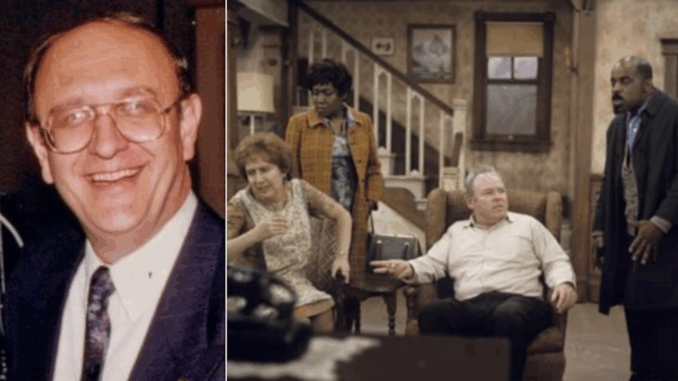
One of television’s unsung heroes, a New Jersey-born Emmy nominee, has died at 84. While he may not have always been in front of the camera, his fingerprints were all over America’s favorite shows. From All in the Family and The Jeffersons to Full House, he helped shape what generations of viewers consider classic family television.
Let’s take a deep dive into his life, his contributions to pop culture, and the legacy that still echoes in today’s shows.
A Quiet Giant of Television
Not every television legend becomes a household name. Some work behind the scenes, shaping stories and characters that define decades. That’s exactly who this Emmy-nominated New Jersey native was—a force behind some of America’s most iconic sitcoms.
Born to Create: A New Jersey Story
Growing up in the working-class neighborhoods of New Jersey, he was no stranger to hard work. While others were chasing headlines, he chased stories that mattered. Stories about families, neighbors, and the struggles of everyday people.
Breaking Into Hollywood the Hard Way
Hollywood isn’t kind to newcomers—especially those who don’t fit the mold. But with grit, talent, and a refusal to be ignored, he clawed his way into the writing rooms and executive offices that made decisions about what families saw on their TV screens.
The Norman Lear Connection
His career truly took off when he began working with legendary producer Norman Lear. Together, they developed shows that weren’t just funny—they were fearless. All in the Family tackled racism, class, politics, and generational divides in a way that no sitcom ever had before.
All in the Family: A Cultural Revolution
This show wasn’t just a hit—it was a cultural earthquake. And behind Archie Bunker’s grumbling and Edith’s high-pitched sweetness was a sharp mind pushing boundaries. He helped craft the stories that made Americans uncomfortable—and made them think.
The Jeffersons: Giving Voice to the American Dream
If All in the Family shook the table, The Jeffersons flipped it over. With the unforgettable George and Weezy moving on up to the East Side, this New Jersey native helped usher in one of the first sitcoms led by a Black family in prime time. And he made sure they weren’t side characters—they were the stars.
Full House: A Softer Side of Storytelling
Not everything he touched had to be controversial to matter. Full House brought warm fuzzies, laughter, and lessons into living rooms every Friday night. This series, though lighter in tone, was still built on values he held dear—family, community, and connection.
A Vision That Went Beyond Ratings
He never chased fame. Instead, he chased impact. He believed that television could be more than escapism—it could be a mirror. A mirror that reflected society’s flaws, hopes, and contradictions.
An Emmy Nomination That Meant More Than Awards
He wasn’t in it for trophies. But when he received an Emmy nomination, it wasn’t just validation—it was recognition that meaningful stories can come from anywhere. Even from a kid who grew up on the streets of Newark.
The Hidden Influence on Generations
While the actors on screen got the applause, it was his pen and ideas that gave them something real to say. Whether it was Archie Bunker’s ignorance or Uncle Jesse’s tough love, those voices were rooted in authenticity—because he insisted they be.
Mentorship and Opening Doors
He didn’t pull the ladder up behind him. Throughout his career, he mentored young writers, particularly those from marginalized communities, reminding them they didn’t have to write what was safe—they could write what was true.
His Legacy Lives On in Reboots and Reruns
Look around TV today. The influence is everywhere. From modern-day family sitcoms to streaming reboots of old classics, the DNA of his storytelling is alive and well. And for many, those reruns are more than nostalgia—they’re a reminder of what honest television can look like.
A Farewell to a Storytelling Pioneer
The news of his passing hit fans and industry peers alike. Social media flooded with tributes, stories, and quotes from shows that changed lives. He may not have always taken center stage, but his absence leaves a giant gap in the heart of American entertainment.
We Lost More Than a Writer—We Lost a Voice
He wasn’t just a showrunner or writer. He was a voice. A voice that challenged systems, uplifted underrepresented stories, and reminded viewers that the world isn’t black and white—it’s layered, funny, frustrating, and beautiful all at once.
Why He Still Matters Today
In a time when representation, storytelling, and truth-telling are more vital than ever, his legacy is a blueprint. He taught us that even on a sitcom stage, you can say something that matters. And that’s what great art does—it makes you laugh, think, and feel all at once.
Conclusion
The Emmy-nominated New Jersey native behind shows like All in the Family, The Jeffersons, and Full House may have left this world, but his stories—and the impact they had—live on. He turned sitcoms into social commentary, laughter into legacy, and a working-class New Jersey upbringing into television gold.
He was proof that the best stories don’t come from the spotlight—they come from real life.
FAQs
Q1: What was this writer’s biggest contribution to television?
He brought real-world social issues into mainstream sitcoms, showing that comedy could have depth and relevance without losing its heart.
Q2: Was he a performer or behind the scenes?
While not typically in front of the camera, his influence was deeply felt in writers’ rooms and creative direction.
Q3: Why is his New Jersey background significant?
It grounded him in working-class realities, which he translated into authentic, relatable storytelling on screen.
Q4: What shows did he help create or write for?
Some of the most notable include All in the Family, The Jeffersons, and Full House—each culturally impactful in its own way.
Q5: How will his work be remembered?
As a cornerstone of television that wasn’t afraid to challenge norms while still entertaining millions.
